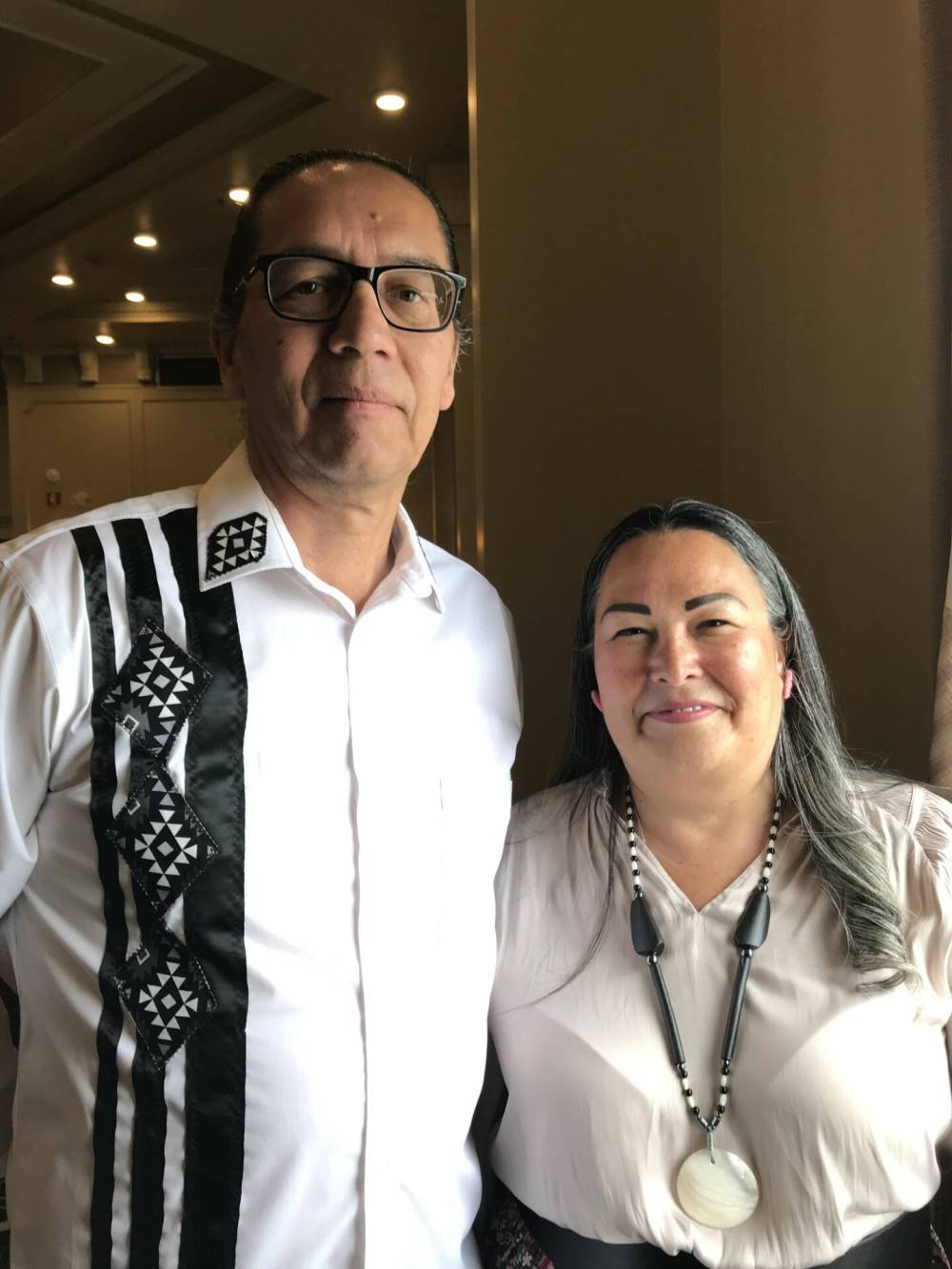Peguis First Nation says they’re caring for their own families, following their own ways and doing a much better job of child welfare than the provincial system did.
“We’re not going to go with the same old thing that’s out there,” said Clemene Hornbrook, executive director of Peguis Child and Family Services.
The agency assumed control of child welfare after developing its own law in January 2022. The federal government had passed legislation (Bill C-92, An Act respecting First Nations, Inuit and Métis Children, Youth and Families) giving Indigenous communities the right to oversee child welfare.

She and Peguis CFS lawyer Earl Stevenson spoke at the Prairie Child Welfare Consortium conference Thursday about developing their own family-centred child welfare practices, laws and regulations to replace a broken system.
Manitoba registered a 22 per cent increase in CFS contact among First Nations infants and a two per cent increase among non-First Nations infants, from 1998 to 2019, as University of Manitoba researcher Kathleen Kenny reported Wednesday.
Kenny, a post-doctoral fellow in community health sciences, said the “shocking” findings point to the “urgent” need for First Nations-led solutions.
“Don’t ask for another box of Kraft Dinner just to get by,” Hornbrook told a crowd of more than 200 at a Winnipeg hotel.
“We’re done with asking. We’re telling you what we need. We’re telling you what we want and we’re not taking no for answer,” she said.
Peguis is the only jurisdiction in Manitoba to establish its own child welfare system, including intake services, child abuse investigations, after-hours and early intervention services for the 11,000 members who live on and off reserve.
In January 2023, it signed a co-ordination agreement with the federal and provincial governments, which included a three-year, $319-million commitment from the federal government to fund all aspects of child and family services. Hornbrook said Peguis is still waiting for the province to come up with its funding model.
Stevenson said they worked with elders to develop their own policies, regulations and legislation that incorporated feedback from the courts and outside legal experts. It involved “braiding together” legal systems with the goal of strengthening families. They’ll never completely sever a child’s ties with family.
“Our agency no longer seeks permanent orders. Many other nations are following in our steps,” Stevenson said.
They’ve nearly halved the number of children in care, he said.
Last month, 230 Peguis children were in care; in 2020, there were 452.
The lawyer said they’ve dramatically reduced the number of child protection matters that appear in provincial court, which sits once a month in Peguis, 200 kilometres north of Winnipeg.
“From January to March 2023, we had zero child protection matters in Peguis,” Stevenson said. “That was the first time that ever happened.”
Elders are involved in court alternatives and dispute resolution, said Stevenson.
“Our elders have traditionally had an authoritative place,” said Hornbrook, likening them to a governance board that holds the child welfare agency to account.
Rather than taking families to court, they have alternatives processes, she said.
“It’s not an adversarial approach. We’re working with them. We have sharing circles and we bring everybody in.”
When a family needs help, they can choose who their homemaker or grandparent/mentor will be, rather than having a stranger in their home, she said.
The alternative to taking control of child welfare would’ve been to do nothing and watch more Peguis children become permanent wards of the province — at a huge loss to the families and the children, Hornbrook said.
It may cost $300,000 a year for Peguis to support and strengthen a family with six children in their home, but it’s important to look at the cost of removing them and placing each of those six kids in foster care “and what the damage is going to be,” said Hornbrook. An emergency placement for just one troubled teen in the provincial system can cost up to $800 per day, she noted.
It costs so much to sustain the system that supports children as wards of the province that it should be turning out doctors and other professionals, Hornbrook said.
“But that’s not the outcome we see. They’re homeless, they’re damaged, they’re hurt, they’re traumatized and completely removed from their community,” with “maybe a handful successful.”
Hornbrook said keeping children with their families is a better bet and Peguis CFS is ditching most administrative tasks to free up staff to work with families.
“We eliminated 95 per cent of the administration duties so that our social workers, supervisors, reconciliation directors (and other staff) can actually focus on the children and families,” said Hornbrook. “There’s too much bureaucracy in this old CFS system that prevented work being done.”
For example, if a supervisor determines a child requires support, such as programming, they can approve it because they’re the ones working with the family.
“The administrative burden that prevents good people from doing good work doesn’t exist in our agency.”
carol.sanders@freepress.mb.ca

Carol Sanders
Legislature reporter
Carol Sanders is a reporter at the Free Press legislature bureau. The former general assignment reporter and copy editor joined the paper in 1997. Read more about Carol.
Every piece of reporting Carol produces is reviewed by an editing team before it is posted online or published in print — part of the Free Press‘s tradition, since 1872, of producing reliable independent journalism. Read more about Free Press’s history and mandate, and learn how our newsroom operates.
Our newsroom depends on a growing audience of readers to power our journalism. If you are not a paid reader, please consider becoming a subscriber.
Our newsroom depends on its audience of readers to power our journalism. Thank you for your support.